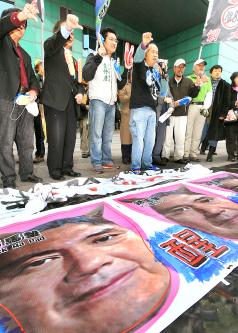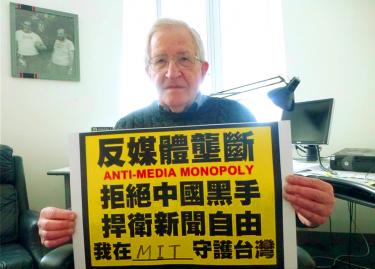
Convener of the 908 Taiwan Republic Campaign Peter Wang, fourth left, and other members of the group hold up signs and encourage the public to come together on Jan. 13 in a rally against President Ma Ying-jeou.
Photo: Fang Pin-chao, Taipei Times
Democratic Progressive Party (DPP) Chairman Su Tseng-chang (蘇貞昌) yesterday criticized the Chinese Nationalist Party (KMT) over its assets, saying the KMT administration had secretly sold its ill-gotten assets, pocketed substantial commissions from the transactions and used the profits to heavily subsidize the party’s election campaigns, spawning grave public grievance in the country.
Accompanied by lawyer Wellington Koo (顧立雄) and representatives from the Foundation of Medical Professionals Alliance in Taiwan, the Rotary Club and the Taiwan Junior Chamber, Su made the remarks at a press conference in Taipei, titled “Giving vent to fury” (火大找出路), which called on more than 1,000 civil groups to hit the streets along with the party in a planned mass demonstration in Taipei against President Ma Ying-jeou’s (馬英九) administration.














